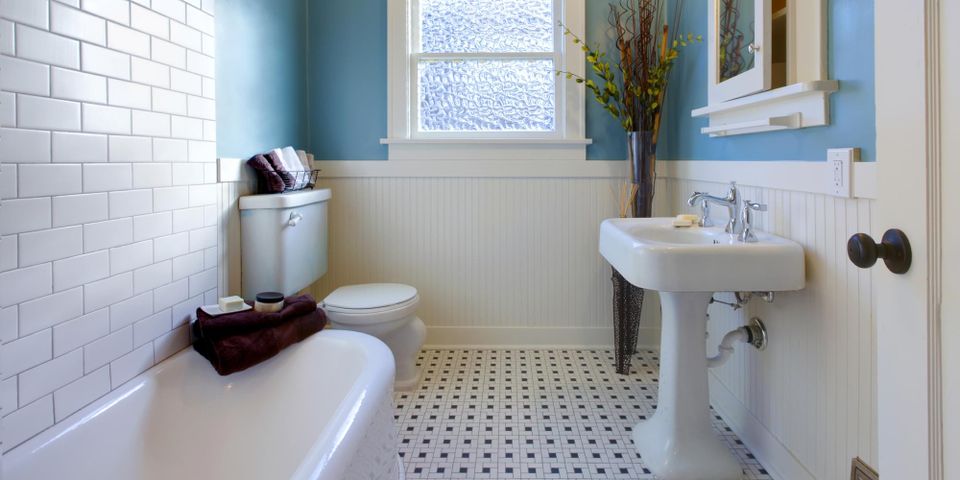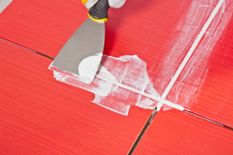How Often Should You Seal Porcelain or Ceramic Tile Grout?

A high-quality sealant is integral to protecting the integrity of porcelain or ceramic tile. From the bathroom to the kitchen, you can maintain your tile’s appearance and extend its longevity by applying sealant at regular intervals. Whether you just installed new tile or want to maintain old ones, the following guide will explain how often to reseal your grout.
When Should You Seal?
 A professional should seal all porcelain and ceramic tile upon installation. Afterward, property owners should inspect their tile at least once per year to assess its condition. To do so, pour a few drops of water on the grout. If it readily absorbs into the material, then it will need to be resealed to prevent moisture damage. If the liquid beads up on the grout, the barrier still offers adequate protection for the time being.
A professional should seal all porcelain and ceramic tile upon installation. Afterward, property owners should inspect their tile at least once per year to assess its condition. To do so, pour a few drops of water on the grout. If it readily absorbs into the material, then it will need to be resealed to prevent moisture damage. If the liquid beads up on the grout, the barrier still offers adequate protection for the time being.
What Are the Benefits?
No one likes the look of dirt-encrusted, grimy grout. Fortunately, regular sealing helps prevent the accumulation of grit, dirt, and other debris between the tile by sealing out moisture. This resilient barrier helps make cleaning quick and easy and also helps prevent discoloration.
Over time, liquid accumulation within the grout can also cause the material beneath the tile to expand and contract, which can lead to cracking, warps, and other flaws. As a result, failing to reseal grout can significantly reduce your tile’s life span. Play it safe and protect your property by conducting a thorough inspection at least once per year.
Protect your ceramic or porcelain tile when you consult the experts at Rino’s Tile & Stone in Anchorage, AK. The locally owned and operated business conducts expert installations using high-quality materials, like porcelain, travertine, slate, and ceramic tile. While they prioritize an excellent caliber of service, they also strive to ensure they do so at a price that their neighbors can afford. To learn more about the local tile technicians, visit the business online or call today at (907) 743-1075.
About the Business
Have a question? Ask the experts!
Send your question

